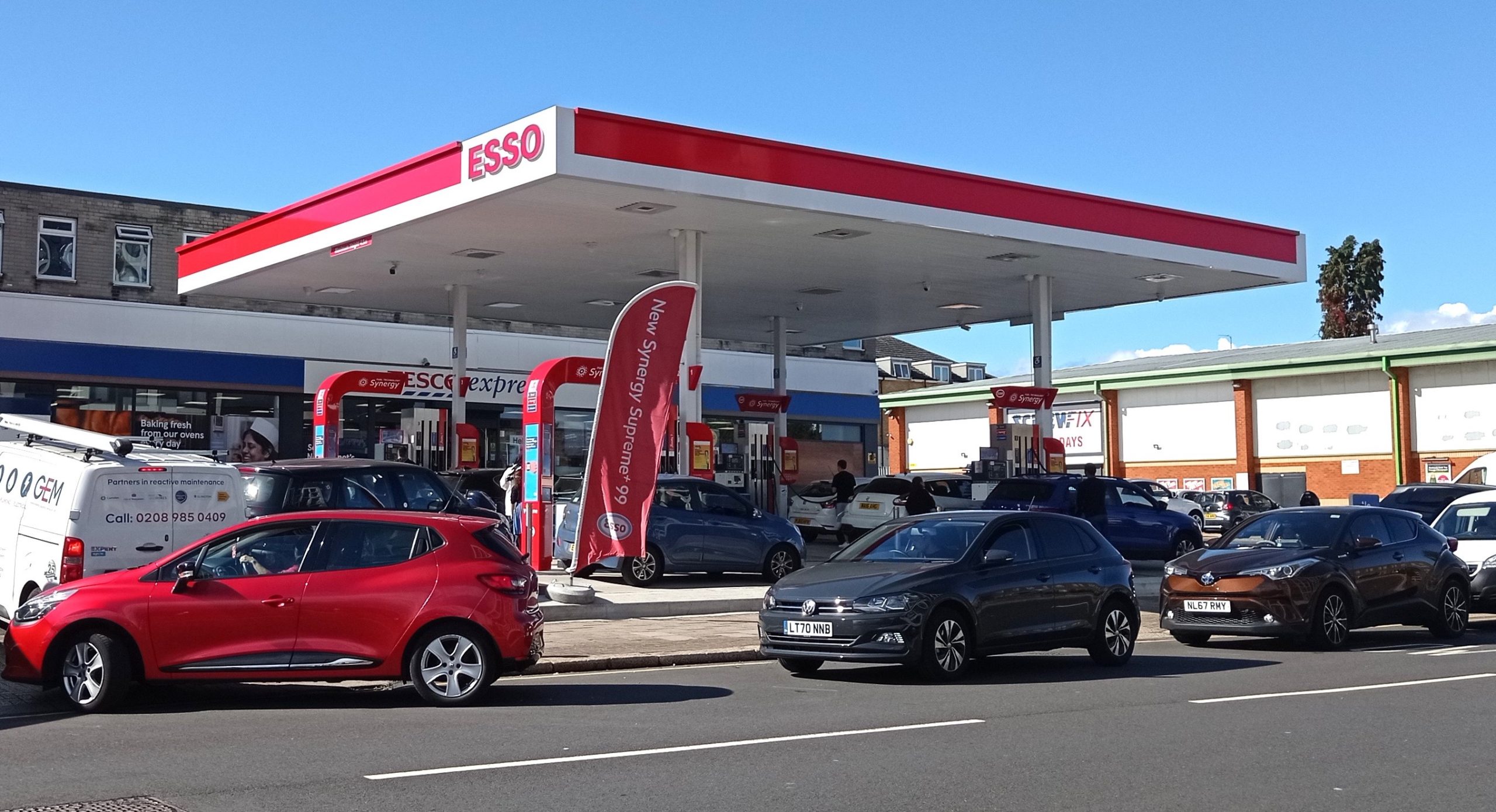But the government was forced to put 150 army military tanker drivers on standby as the crisis on Britain’s streets showed no signs of ending.
Level up? You can’t even fill up
Labour leader Keir Starmer
“We are wasting a lot of time, which is not reimbursed by the operators,” Uber and Bolt driver Mehmet told The Big Issue.
Mehmet, 45, said he waited for two hours between 3am to 5am on Friday to fill up his 62 litre diesel tank in London. He said he covers around 200 miles a day so needs to fill up every two days.
Ugur Oztas, a 34-year-old minicab driver in London, said he waited over an hour filling up on Friday at 2am. Usually he would finish at 1am Saturday mornings but was on the road until almost 3am.
“People are just going crazy at the moment,” Oztas told The Big Issue.
Passengers trying to digitally hail cabs have reported surging fares and a lack of rides in UK cities. But drivers tell a different story: facing long queues and low pay, many feel beleaguered and are considering leaving the industry.
Advertising helps fund Big Issue’s mission to end poverty
Private hire drivers are typically self-employed contractors responsible for purchasing, upkeeping and insuring their vehicles. They say their time spent without passengers is not reimbursed — despite February’s landmark Supreme Court ruling that Uber drivers are workers, not contractors, and therefore entitled to minimum wage and holiday and sick pay.
Drivers told The Big Issue the fuel supply crisis is the latest in a long line of grievances impacting their livelihoods: low wages, high costs and a surge in oil prices to three-year highs.
The fuel crisis on top “is making it difficult for daily basis road users like us to exist,” Mehmet said.
Some gas stations have introduced priority service for frontline workers. “We are not classified by the government as frontline staff, which we are,” Mehmet said. “We are transporting doctors, GPs, nurses and firefighters at the moment to their workplaces because they don’t have use of their cars.”
Mehmet said personally, with surge pricing, his income has not yet seen a significant drop, but others said their daily take home pay has been trimmed during the crisis.
Over the past five years, though, Mehmet said “we are getting poorer and poorer every day.”
Advertising helps fund Big Issue’s mission to end poverty
Many Uber drivers went on strike on Tuesday and will strike again on October 6, calling for Uber to implement the paid waiting time mandated by the Supreme Court; the introduction of fixed-priced fares to boost driver income; and an appeals process for what they say are unfair dismissals.
Nader Awaad, chair of United Private Hire Drivers, part of the Independent Workers’ Union of Great Britain (IWGB), told The Big Issue: “Not being paid for the time we spend at work is nothing new for drivers in the so-called ‘gig economy’.”
He added: “Whatever happens, illness or injury, fuel crisis or pandemic, all the risk and all the costs are put upon the workers while corporations like Uber rake in all the profits.”
Awaad said that gig economy workers “shoulder all the responsibility with few rights” and that IWGB is striking on October 6 to “level the playing field.”
The UK’s fuel shortage has been compounded by a reduction in HGV drivers after the UK left the EU.
Labour leader Keir Starmer attacked the government over fuel shortages at his Wednesday party conference speech in Brighton.
Advertising helps fund Big Issue’s mission to end poverty
“If you go outside and walk along the seafront, it won’t be long before you get to a petrol station that’s got no fuel.”
“Level up? You can’t even fill up,” Starmer said, mocking the prime minister’s flagship slogan.
Starmer added: “Prime minister, either get a grip — or get out of the way and let us step up and clear up this mess.”
Following Uber and GMB’s trade union recognition deal in May, “drivers have an even stronger voice within Uber,” an Uber spokesperson said. “We are working together with our trade union partner to raise standards for drivers through greater transparency and engagement.”
The spokesperson added: “GMB represents drivers in areas such as earnings, deactivations and the implementation of new worker benefits, such as holiday pay and pensions.”
Consumers have faced issues hailing rides and prices have often hit surge rates, “but it’s not financially beneficial for us,” minicab driver Oztas said.
Advertising helps fund Big Issue’s mission to end poverty
“The reduced availability of vehicles has led to a surge of customer complaints about delays and cancellations especially for longer trips,” James Farrar, general secretary of the App Drivers and Couriers Union, told The Big Issue. “App operators such as Uber and Bolt can play their part by immediately raising the prices so that the scarce supply is allocated more efficiently and passengers have a more reliable service.”
Several drivers told The Big Issue they are thinking of quitting private hire work. “It’s our job,” Tuzen said. “If it continues like this, how are we going to do it?”
If the crisis stretches on, Tuzen added, “we will probably have to decide to give up this job.”









